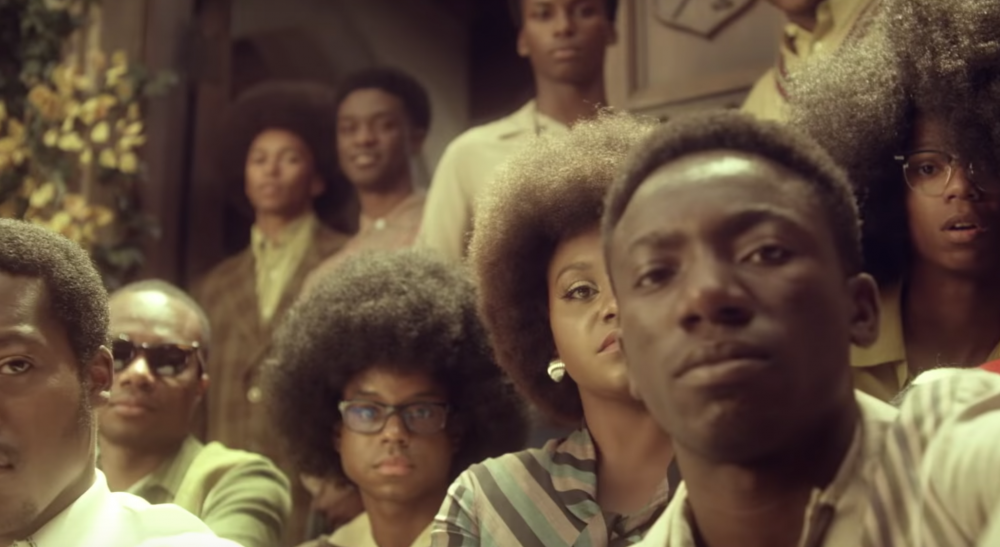“Something’s changed,” says Sam White, looking out over a sunny expanse of grass and concrete. “Logic, reason, discourse — it’s out the window now.”
Season two of Dear White People, based on the 2014 movie, picks up as main characters Sam, Lionel, Troy and others grapple with the aftermath of a chaotic town hall protest. A fire at Davis House leads to the integration of Armstrong-Parker House, and chaos ensues over Internet trolls.
Narrator Giancarlo Esposito (Breaking Bad), in his deep, macho tone, reintroduces the characters and omnisciently reminds viewers of their backstories and struggles. It’s effortless and smooth, eliminating confusion and memory loss.
As with season one, each episode in season two follows a different character’s perspective. Dear White People covers relevant issues like race, protests, democracy and free press.
In this season there’s less action, but the show continues to ask timely questions about today’s society and politics. The series makes any binge-watch feel intelligent and relevant. It excels at depicting a college atmosphere in an educational way — it strays from the cliché frat party storyline.
In Dear White People, characters discuss philosophy and Freud. The series depicts college students as thoughtful and features storylines that focus on course material in addition to extracurricular activities.
Dear White People also differentiates itself through tactful writing. When main character Sam tackles haters, she also engages in a philosophical battle of discourse intertwined with history, civil rights and political theory. Characters allude to philosophy and the psychology of racism, but the show brilliantly balances these “pretentious conversation” topics by interspersing slang and clever remarks that makes the Real Housewives seem intelligent.
Intricately developed character arcs and dilemmas develop the storylines. The series proves the voice is a powerful tool to deal with anger and frustration. Characters tackle grassroots self-described “alt-right” movements, media pushback and Internet trolls who attack foundational family structures.
Dear White People‘s videography and editing skills also triumph. Camera shots convey messages and powerful imagery that sets the comedy apart from other series. For example, after a meeting with the dean, Reggie walks down a hallway with pictures of white men on each side. The scene is breathtakingly symbolic and edited to perfection.
The series uses humor to cleverly depict conflict. Throughout the season, Esposito provides sarcastic, entertaining commentary. When a peer expresses his preference for white males, Lionel proclaims, “He’s like a 1950s water fountain.”
The jokes may at first seem intimidating, but it’s small remarks like these that make Dear White People the thoughtful show every Netflix user should be watching.



